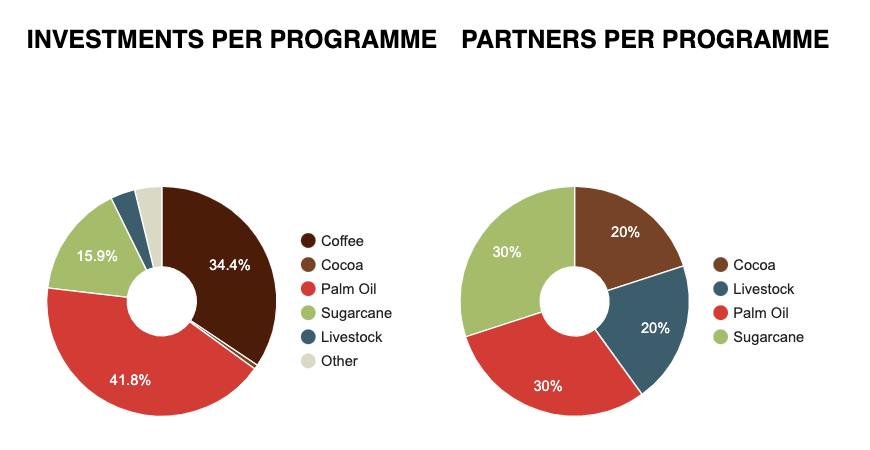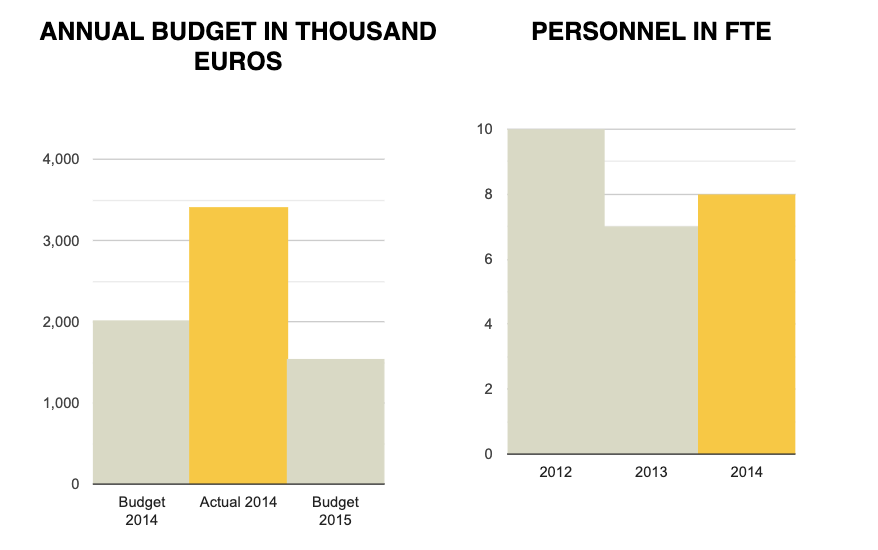REGIONAL COMMODITY PROGRAMMES
REC CAM aims to bring about continuous improvement in agricultural and industrial production processes, as well as social and labour conditions, through certification. We have focused on increasing productivity to prevent production areas expanding at the expense of food production and forested areas. This primary strategy has helped convert more than 40,000 ha of oil palm in Honduras and Guatemala to sustainable management practices.

Solidaridad’s work in the sugarcane sector is moving from pilot sustainability projects in Mexico to broader and deeper engagement across the region. Our efforts to understand, contain, and start to eradicate chronic kidney disease earned worldwide acclaim, while beyond the mills we are implementing grassroots interventions with sugarcane cutters in Mexico and El Salvador.

Twenty farmer field schools are helping 520 farmers implement silvopastoral systems, improve cattle management, and increase milk production. The larger intended outcome is to help the entire livestock sector in Nicaragua adapt to climate change, achieve better environmental outcomes, and increase incomes.

Solidaridad’s project BACK to REDD (Bringing Agriculture, Carbon and Knowledge to Reducing Emissions from Deforestation and Forest Degradation) in Mexico is helping farmers recover from the coffee leaf rust outbreak, renovate their plantations, use climate-smart practices to build resilient production systems, diversify agroforestry systems, and improve food security.

Cocoa as a crop offers farmers the opportunity to increase and diversify their income, overcome poverty, improve food security, and develop resilient production systems. Unmet demand for fine quality cocoa originating in Mesoamerica is driving intense interest and investment to improve yields, quality and technical training.

EXTERNAL DEVELOPMENTS
In a region in which poverty, high unemployment, and food security remain pressing concerns, agriculture continues to be an important sector, especially in Guatemala, Honduras and Nicaragua, where over 30% of workers are in farming and related jobs. Small and medium enterprises (SMEs) are experiencing operational difficulties, in part due to the weakening of foreign aid investment, which has prioritised Africa of late.
But progress is being made. The Roundtable for Responsible Palm Oil (RSPO) opened a Latin American office and has greatly increased its engagement in the region. This coincides with a marked growth in interest from companies to look at their supply base in the region and work collaboratively for mutual benefit.
Our work with the round tables and companies has brought greater recognition of Solidaridad as an organization that can build public-private sector initiatives that create real results. We have also earned a reputation as an organization that can bring together environmental and social organizations to foster not just better practices but also effective dialogue. This will help us move from adopting an individual commodity approach to engaging partners in a more productive way for an integrated approach.
A beneficial cycle underlies the progress made this year. Greater interest from the corporate sector is a positive signal to donor agencies, which in turn creates incentives for producers to participate in continuous improvement programmes.

RESULTS AND PARTNERSHIPS
Our work over the last two years has mainly focused on the Farmer Support Programme. Our palm oil projects in both Honduras and Guatemala are highly visible and under a great deal of scrutiny by all interested partners, from governments to activist organizations. Early successes are resulting in requests from other countries to engage in the work. Similarly, our pilot work in sugarcane in Mexico has led to a high degree of visibility at both the regional and the national levels, with other parties in Mexico requesting support.
While NGOs typically begin their intervention at the producer level, we have used roundtable standards (Bonsucro and RSPO) to focus on mills and plants as the initial points of certification. This approach appears to have a much greater capacity for scaling up through entire supply chains. The two round tables have been among our most important partners this past year.
Among the many other partners making our work possible, WWF and ILO have played key technical roles and La Isla Foundation is working with us on a very significant project to address CKDnT (chronic kidney disease of nontraditional causes) in sugarcane workers. That work has attracted enormous international interest via publications in peer reviewed medical and occupational safety & health journals, as well as coverage in numerous highly regarded newspapers such as The Guardian and The New York Times.
Corporate partners, including Barcardi, Henkel, IOI, and Johnson & Johnson, have delivered both financial support and commitments to buying certified sustainable palm oil and sugar.

DONORS AND ORGANIZATIONS
Our most important donor over the last year has been the Dutch Ministry of Foreign Affairs, with 70% project co-financing coming from the mills and extracting plants participating in the projects. A private donor provided funding for innovation in sugarcane and palm oil.
Solidaridad Central America continues to improve on all aspects of operational and project management. In 2014, staff participated in all organization-wide meetings with the various commodity teams, PME and FC teams, and engaged in other cross-cutting issues such as gender, water, and smart and sustainable land use.
In addition, we have two team meetings a year in which we:
- Provide updates on all projects under implementation, advances on proposals under development, and discuss opportunities identified and general trends on both national and regional levels.
- Receive training on issues related to our role in Solidaridad Network and in our region; in July 2014 the entire team was trained on Project Cycle Management by Saskia Nijhof.
- Review our various tools and formats for both improvement and new tool development.
- Focus on team building.
Staff size remained consistent through 2014, but will grow as our programmes expand in 2015 and our presence is legalized in Honduras, Nicaragua and Mexico.
